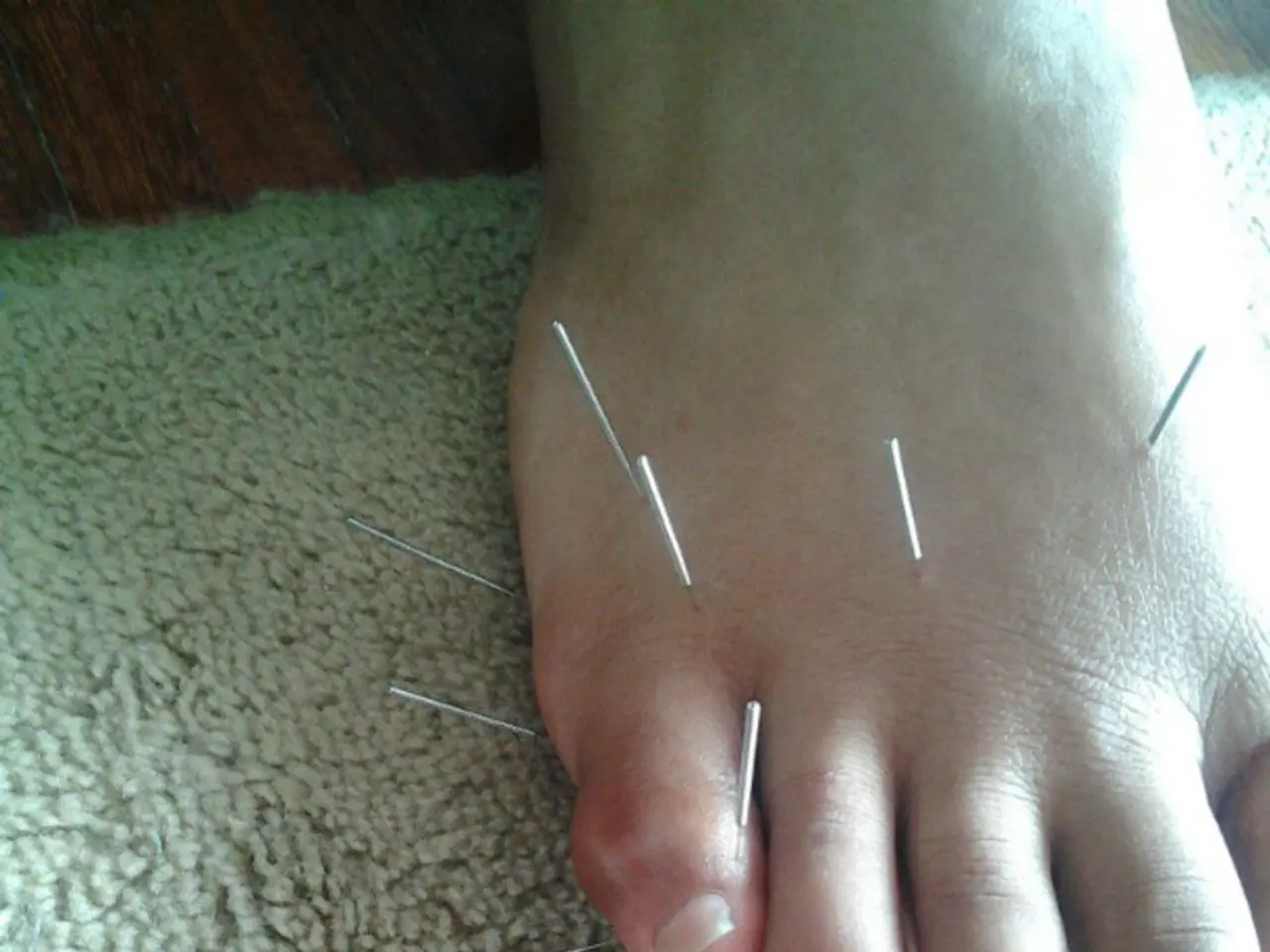Varicose Vein Discomfort: Recognizing Symptoms and Available Remedies
Varicose veins, swollen and enlarged veins that can be blue or dark purple, are a common health issue affecting approximately 35% of people in America, according to the Society for Vascular Surgery. These twisted and rope-like veins, most often found on the legs, can cause a range of symptoms that go beyond cosmetic concerns.
Common symptoms of varicose veins include visible bulging, leg pain (often described as a deep ache), leg heaviness, tiredness, or fatigue, restless legs syndrome, cramping, burning, and itching around the affected veins, swelling and skin discoloration, and dry, flaky, itchy skin over the veins.
While some people may not experience symptoms, those who do often find that their symptoms worsen during warm weather, late in the day, or when they have been standing up for extended periods. In some cases, varicose veins can lead to complications such as bleeding, venous leg ulcers, blood clots, hyperpigmentation, and even dermatitis, an itchy, inflamed rash.
If prevention methods, such as wearing compression stockings, elevating the legs, and regular exercise, do not help reduce pain and discomfort, a doctor may recommend further treatment options. These can include minimally invasive treatments like ablation and sclerotherapy, or more invasive procedures like ligation or stripping, where veins are tied or removed to stop blood pooling.
Ablation is a treatment method that uses heat (either laser or radiofrequency) to seal affected veins, usually performed in a doctor's office with a local anesthetic. Sclerotherapy is a procedure that involves injecting a foam called sclerosant into a varicose vein, causing it to spasm, scar, clot, and eventually close off. Both treatments are relatively quick, with ablation taking around 20 minutes and sclerotherapy taking just a few minutes per vein.
It is important to note that symptoms of varicose veins, such as aching, swelling, or fatigue, should be evaluated by a doctor, even if varicose veins are not visible. If varicose veins are causing pain, discomfort, or irritation, particularly at night, medical treatment is recommended.
In conclusion, varicose veins are not just a cosmetic problem; they can signal serious circulatory issues and lead to significant discomfort and complications if ignored. It is advisable to seek evaluation by a vascular specialist for proper diagnosis and treatment.
- The predictive analysis by the Science of Health highlights that depression may be linked to chronic sleep disturbances, a concern that is becoming increasingly relevant in the realm of workplace wellness.
- Medical conditions such as cancer, respiratory conditions, digestive health issues, and even eye health, hearing problems, and skin conditions often require extensive therapies and treatments as part of overall health and wellness management.
- Fitness and exercise, along with proper nutrition and weight management, play crucial roles in maintaining cardiovascular health and managing a variety of medical conditions, including autoimmune disorders and mental health issues.
- AQ, a new diagnostic tool developed by the medical community, is proving to be effective in predicting the onset of neurological disorders, offering hope for early intervention and potential treatment.
- Skin care, beyond cosmetic concerns, is essential in managing various skin conditions, from acne to eczema, and in maintaining overall health and hygiene.
- Nutrition and dietary choices have a significant impact on several health aspects, including digestive health, cardiovascular health, and even the management of certain mental health conditions.
- In addition to the commonly known complications, varicose veins can also lead to conditions such as autoimmune disorders, causing further concern for those who suffer from them.
- Therapies and treatments for various medical conditions, such as medication, surgery, or lifestyle modifications, are crucial in managing symptoms and improving quality of life.
- Depression, a common mental health issue, often co-occurs with other chronic diseases, making it imperative to address both the mental and physical aspects for effective treatment.
- A visible sign of varicose veins, such as skin discoloration or dry, flaky, itchy skin, should not be ignored, as it may indicate underlying circulatory issues that need attention.
- While wearing compression stockings and elevating the legs can provide relief for some, those experiencing severe pain or discomfort from varicose veins should consider seeking medical assistance for potential treatment options.
- Regular check-ups with health professionals, including vascular specialists, are crucial for early detection and management of conditions like varicose veins, ensuring a better quality of life and preventing potential complications.




